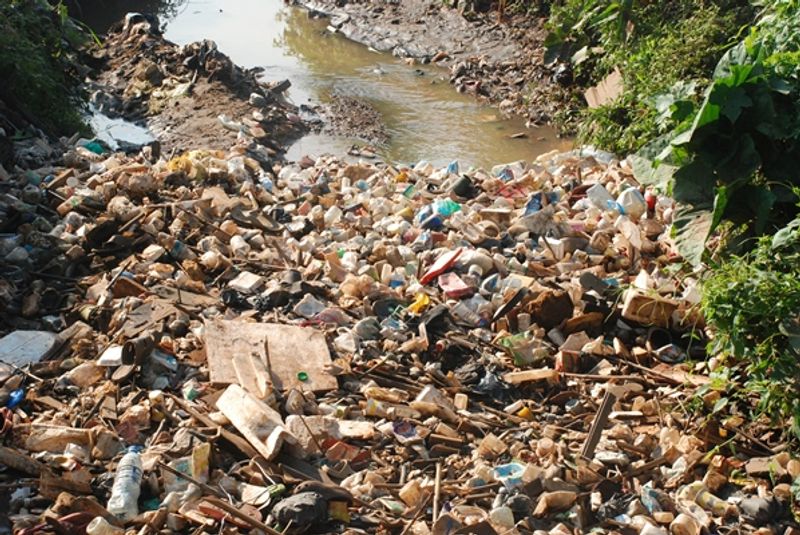

Plastic if not well disposed can stay for hundreds of years
Of recent Ugandans especially those living in urban areas have witnessed several places flood due to heavy and frequent rains. Many reasons have been given for this situation among which include blockage of water drainage channels due to solid waste mainly plastics materials.
Research has shown that plastics take years to decompose and the very first plastics to ever be made still exist within the ecosystem in some micro-form. They accumulate in the environment to the point that they create problems for wildlife and habitats as well as for human populations.
The world has seen a sporadic increase in the amount of plastic that is produced. Data shows that aannual production of plastics has increased from 2 million metric tons in 1950 to 381 million tonnes in 2015.
In Uganda, it is estimated that 251 tonnes of plastics are produced annually. Although there has been an effort to control plastics in the country, a lot is still needed.
Many lightweight single-use plastic materials, for example, mineral water bottles, soft drinks bottles and polythene bags, which account for approximately half of all plastics produced, are not deposited of in containers for subsequent removal to landfills, recycling centres, or incinerators.
Instead, they are improperly disposed of at or near the location where they end their usefulness to the consumers.
The dangers of such materials to the environment start immediately after their poor disposal and proceed for thousands of years given the fact that they take long to break down into Micro and Nano-plastics.
In addition, these materials turn out to be breeding places for mosquitoes; which transmit Malaria, a major health concern still claiming many lives annually. Uganda’s fresh water sources are also affected. Plastics accumulate on river banks, float on the surface and some sink on the bottom.
Because 70% of all plastics are known to eventually sink, it is suspected that ever increasing amounts of plastic items are accumulating at the bottoms of our natural water sources. This means that in a few decades from now, with the current rate of pollution, Ugandan water bodies will greatly be affected. It should be noted that Uganda last year earned about $171 million (Shs635 billion) from fishing, not forgetting the rare bird species that attract tourists.
Micro-plastics are microscopic in size but disintegrate further to Nano-plastics. These are released directly into nature and recent studies emphasize how they are easily ingestible by small organisms, such as plankton species, and form a pathway to enter the food web.
It’s, therefore, necessary right from the household level to properly dispose of plastics. Manufacturing companies ought to ensure that packaging materials for their products are environmentally friendly and where possible provide suitable incentives for the people to collect plastics for recycling. Short of that, we are likely to continue experiencing regular floods in several places.
Arnold Tigaiza- Student at Makerere University School of Public Health














Arnold Tigaiza
Leave a Comment
Your email address will not be published.